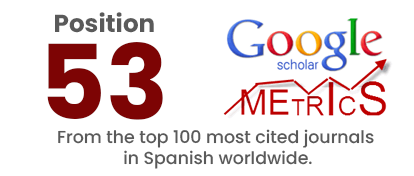Survey The Factors Affecting Relationship Marketing With Emphasis On The Role Of Buyer-Seller Relationship Quality
DOI:
https://doi.org/10.36097/rsan.v0i36.1215Keywords:
relationship marketing, buyer-seller relationship qualityAbstract
The purpose of this paper are a few topics. First, how can a purchasing company consider whether its key supplier network image is currently in line with the key supplier network format? Second, how can a purchasing company become aware that key supplier network images may benefit from the revision? Third, how can a buying company overtake new insights, which may lead to a revision of key supplier network images and the creation of new actions and responses to key suppliers. Result of our surveys, to create a competitive advantage, industrial marketers need to have the knowledge and skills needed to manage communication with their customers. Relational marketing should seek for a relationship that will lead to customer repurchase. This is achieved through satisfaction and customer value. In the industrial market, customer and supplier relationships are a source of competitive advantage. Relational marketing must identify and create value for its customers on a continuous basis so that the interests of both parties are taken into account. The relationships between the organization and its suppliers are vital to any organization. Providers can directly influence the financial performance and profitability of the company through purchasing activity, and their impacts will be on product development costs, inventory levels, production planning, production rates, timely product delivery and services. Supply chain management is a way to enhance the competitive advantage that is becoming increasingly important. Long-term relationships between suppliers and buyers reduce buyers' uncertainty. And this is perhaps the most important reason industrial marketers are looking for a long-term relationship. Industrial relations need to be recognized and worked on to develop and improve it so that the needs and goals of the company can best be met.
Downloads
References
Elsebeth Holmen,, Tina B. Aune, . , Ann-Charlott Pedersen (2013). Network pictures for managing key supplier relationships.
Thomas Brashear Alejandro, Daniela Vilaca Souza, James S. Boles. Aurea Helena Puga Ribeiro, Plinio Rafael Reis Monteiro(2011). The outcome of company and account manager relationship quality on loyalty, relationship value and performance.
Ulf Elg, Seyda Z. Deligonul, Pervez N. Ghauri, Wade Danis, Veronika Tarnovskaya (2012). Market-driving strategy implementation through global supplier relationships.
Ingmar Geiger a.*, Aurélia Durand b. Samy Saab , Michael Kleinaltenkamp d, Roger Baxter e, Yeonhee Lee.(2012). The bonding effects of relationship value and switching costs in industrial buyer-seller relationships: An investigation into role differences.
Björn Sven Ivens a.* Mark van de Vijver b. Bart Vos(2013). Managing and developing key supplier relationships: An introduction to the special issue, discussion and implications.
Arvid O.I. Hoffmann *, Joost M.E. Pennings, Simone Wies(2011). Relationship marketing's role in managing the fim-investor dyad.
Sang-Lin Han a,1, Hyung-Suk Sung 6.2, Hyeon-Sook Shimc* (2014). Antecedents and performance outcomes of flexibility in industrial customer-supplier relationships.
Adam J. Marquardt.(2013). Relationship quality as a resource to build industrial brand equity when products are uncertain and future-based.
Li Ling-yee *.(2011) Marketing metrics' usage: Its predictors and implications for customer relationship management.


















